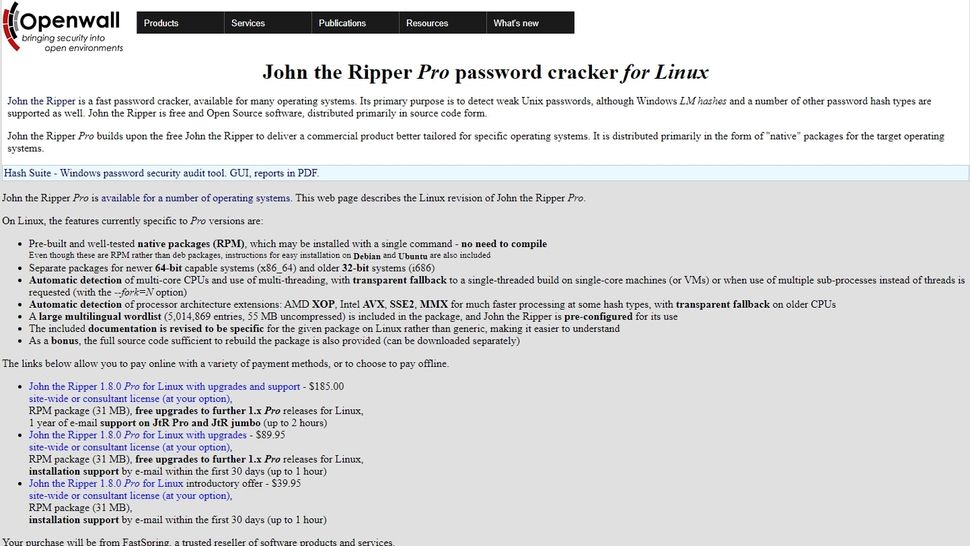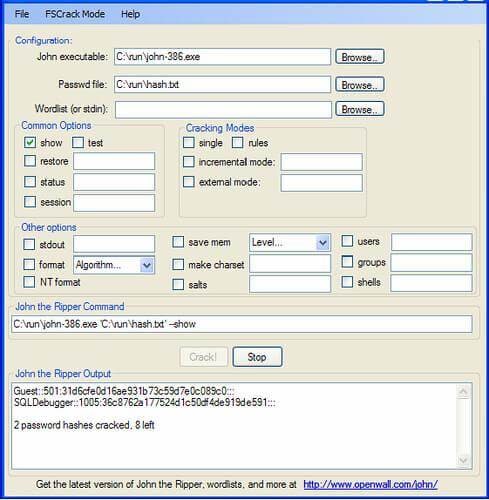

John the Ripper Pro adds support for Windows NTLM (MD4-based) and Mac OS X 10.4+ salted SHA-1 hashes.



On Linux distributions with glibc 2.7+, John 1.7.6+ supports SHA-crypt hashes, with optional OpenMP parallelization (requires GCC 4.2+).traditional DES-based, "bigcrypt", BSDI extended DES-based, FreeBSD MD5-based, OpenBSD Blowfish-based, Kerberos/AFS and Windows LM (DES-based), DES-based tripcodes.This tool supports a lot of Unix crypt(3) hash types:.You can use same cracker everywhere, since John is available for different platforms, with possibility to continue a cracking session started on another platform.It allows you to define a custom cracking mode using the built-in compiler supporting a subset of C.Feature-rich and fast password cracking tool, with several cracking modes.This method takes a long time to run, but it’s precious for cracking password that doesn’t appear in wordlist dictionary. Brute force: It goes through all the possible plaintexts, hashing each one and then comparing it to the input hash.Dictionary: It takes text string samples from wordlist, which contains dictionary of real passwords that are cracked before, encrypting it in the same format as the password being examined (encryption algorithm/key), and comparing the output to the encrypted string.John the Ripper offers two types of attacks: Besides several crypt(3) password hash types most commonly found on various Unix systems, supported out of the box are Windows LM hashes, and a lot of other hashes and ciphers in the community-enhanced version.įor those who rather use commercial version, John the Ripper is available for following platforms: Its primary purpose is to detect weak Unix passwords. But today it runs on fifteen different platforms. This password cracking tool is free and Open Source, initially developed for the Unix operating system. It uses wordlists/dictionary to crack many different types of hashes including MD5, SHA, etc. John the Ripper ( JTR) is a widely known and verified fast password cracker, available for Windows, DOS, BeOS, and OpenVMS and many flavours of Linux.


 0 kommentar(er)
0 kommentar(er)
